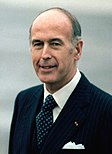French legislative election, 1993
|
|
|||||||||||||||||||||||||||||||||||||||||||||||||||||||||||||||||||||||||||||||||||||
|
|||||||||||||||||||||||||||||||||||||||||||||||||||||||||||||||||||||||||||||||||||||
|
|||||||||||||||||||||||||||||||||||||||||||||||||||||||||||||||||||||||||||||||||||||
|
|||||||||||||||||||||||||||||||||||||||||||||||||||||||||||||||||||||||||||||||||||||
French legislative elections took place on 21 and 28 March 1993 to elect the tenth National Assembly of the Fifth Republic.
Since 1988, President François Mitterrand and his Socialist cabinets had relied on a relative parliamentary majority. In an attempt to avoid having to work with the Communists, Prime Minister Michel Rocard tried to gain support from the UDF by appointing four UDF ministers. After the UDF withdrew its support for the government in 1991, Rocard and the UDF ministers resigned. The UDF then became allied with the Gaullist Rally for the Republic (RPR).
The Socialist Party (PS) was further weakened by scandals (involving illicit financing, contaminated blood and other affairs) and an intense rivalry between François Mitterrand's potential successors (Lionel Jospin and Laurent Fabius). In March 1992, the Socialists were punished at the local elections. Prime Minister Édith Cresson was replaced by Pierre Bérégovoy. The latter promised to struggle against economic recession and corruption, but he was himself suspected to have received a loan from a controversial businessman, Roger-Patrice Pelat.
The election was a landslide victory for the RPR-UDF alliance, while the PS and their left-wing allies received their worst result since the 1960s. The PS lost nearly 80% of the seats they had held at the time of the chamber's dissolution. This caused a crisis within the PS; Fabius lost his position as First Secretary in favour of Rocard, who claimed that a political "big bang" was needed. Jospin announced his political retirement after he was defeated in his Haute-Garonne constituency. Depressed by the defeat and the accusations about the loan from Pelat, Pierre Bérégovoy committed suicide on 1 May.
...
Wikipedia





